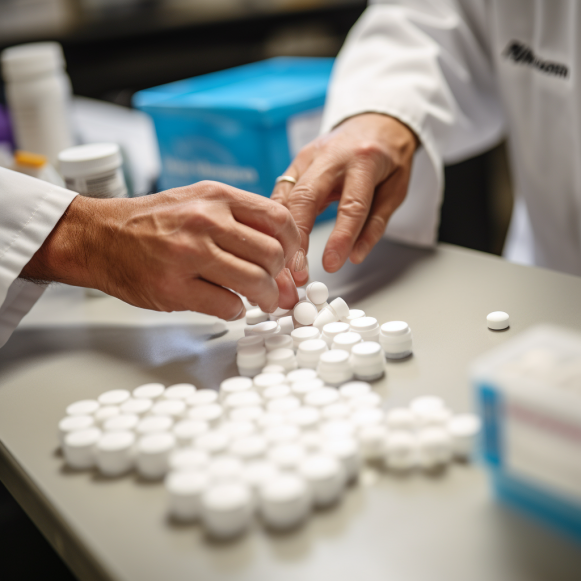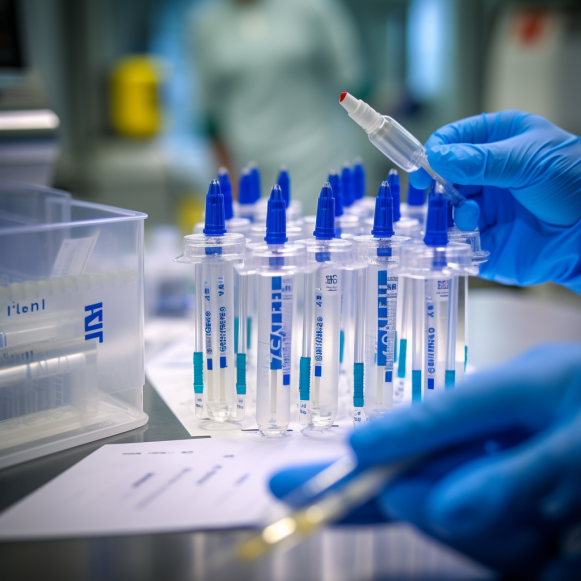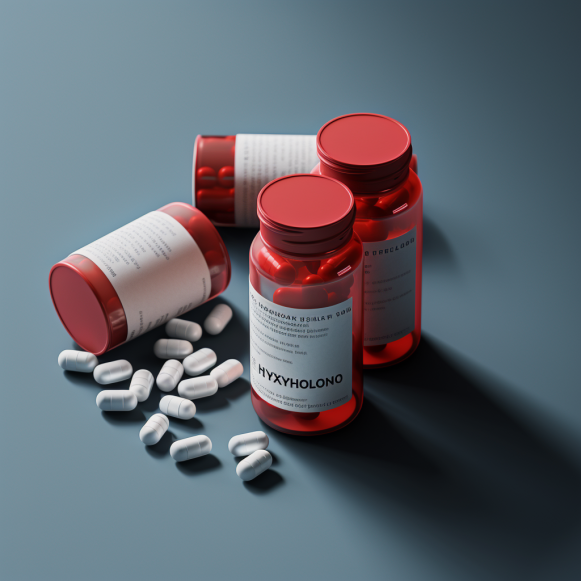Hydroxychloroquine Associated With Lower COVID-19 Mortality: Study

The French study included 30,202 patients.
According to a new study, COVID patients who received hydroxychloroquine were less likely to die than those who did not.
According to French researchers, only 0.8 percent of patients at a French facility who received hydroxychloroquine (HCQ) and an antibiotic died, compared to 4.8 percent of patients who did not receive the drug combination.
“This study represents the largest single-center study evaluating HCQ-AZ in the treatment of COVID-19,” wrote Dr. Didier Raoult of Aix-Marseille University in Marseille and his colleagues. “Similarly, to other large observational studies, it concludes that HCQ would have saved lives.”
The study was published in New Microbes and New Infections. It was published as a preprint earlier this year, but the authors withdrew it because they had changed their “analytic strategies.”
Researchers examined records from 30,423 COVID-19 patients treated at another Marseille hospital, IHU Méditerranée Infection. They included all adults who tested positive for COVID-19 and were treated as an inpatient or outpatient in a hospital between March 2, 2020, and December 31, 2021.
Because treatment information for the remaining 221 patients was unavailable, the study population was reduced to 30,202 patients.
The majority of the patients were given off-label doses of hydroxychloroquine and azithromycin (AZ), a common antibiotic. The drug combination was given to 23,172 patients in the group. The remaining 7,030 did not.
191 people, or 0.8 percent of those who received the drugs, died. 344 people, or 4.8 percent, died among those who did not.
Those who received HCQ and AZ had a higher chance of survival, whether they were inpatients or outpatients.
Outpatients aged 50 to 89 had the greatest effect.
The study’s limitations included drawing on records from a single center. The French government provided some funding.
For decades, HCQ has been approved in both France and the United States, but not for the treatment of COVID-19.
According to Dr. David Boulware, an infectious disease specialist at the University of Minnesota Medical School, clinical trial data do not support the use of HCQ against the illness.
“Hydroxychloroquine has not been shown to have any benefit in randomized clinical trials,” Dr. Boulware, who was not involved in the new study, said in an email to The Epoch Times.
“There is zero antiviral effect in humans, and zero reduction in hospitalization among 11 randomized clinical trials pooled together,” he added, referring to a metanalysis he co-authored in January. Dr. Boulware also assisted in the execution of a randomized trial examining HCQ as a prophylactic in people exposed to COVID-19, which discovered that it did not prevent illness or confirmed infection.
Mixed Evidence
Dr. Raoult and his co-authors acknowledged that several large randomized trials, including a World Health Organization trial, found no benefit for HCQ against COVID-19. However, they claimed that the largest study, funded by the World Health Organization and the UK government, had “significant methodological problems,” including excessive dosing during the first 24 hours.
Smaller trials with similar findings were also criticized as underpowered, including a trial in France that was halted due to enrollment issues.
“In contrast, several large observational retrospective studies published in the literature, including a total of 47,516 patients, report a benefit of using HCQ on the mortality of COVID-19 patients,” the authors wrote, citing research from France, Iran, and Spain.
They stated that the number of patients in observational studies outnumbers the number of patients in randomized clinical trials (RCT), supporting the use of HCQ as an early treatment.
Dr. Boulware stated that observational data can be hampered by serious issues, citing a 2020 response to an observational U.S. paper that reported an association between HCQ and lower mortality among hospitalized patients.
Dr. Raoult and his co-authors acknowledged the limitations of observational data but bemoaned the lack of clinical trials using proper dosing.
“Unfortunately, few if any of the RCTs that have attempted to demonstrate the efficacy of HCQ on COVID-19 patients were run with an appropriate methodology,” they wrote in their report.
“The main issues were an insufficient target (late treatment), an excessive drug dosage, or an insufficient study power.” While observational studies have confounding factors, as discussed above, significant effect estimate differences between RCTs and observational studies are more likely to be linked to study quality than study design,” they wrote, citing a Cochrane Review that found little difference between observational studies and clinical trials.
“In any case, since the epidemic has now vanished, it is no longer possible to conduct RCTs,” the researchers said. “Only observational studies can bring any more insights to support policymakers with repositioning of hydroxychloroquine in the treatment of COVID-19.”
Dr. Raoult was the director of the facility where the patients were seen, but he retired in 2022 after a French agency investigation discovered issues with regulation compliance at the facility. Several of his papers were later retracted.
Dr. Raoult did not respond to an interview request.
The new study comes about a month after Belgian researchers reported in another observational study that HCQ combined with AZ reduced COVID-19 mortality among hospitalized patients.
“Our study suggests that, despite the controversy surrounding its use, treatment with hydroxychloroquine and azithromycin remains a viable option,” AZ Groeninge Hospital nephrologist Dr. Gert Meeus and colleagues wrote.
This group raised concerns about trials that were similar to those raised by the French group, including dosing levels.






